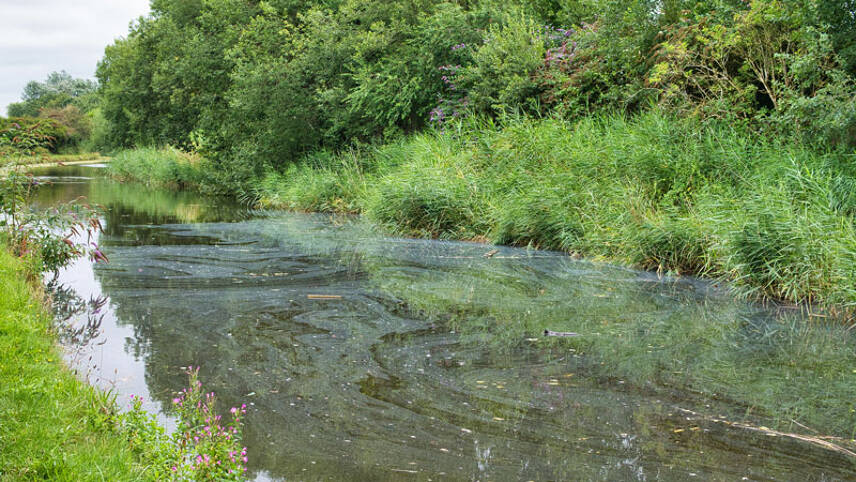Register for free and continue reading
Join our growing army of changemakers and get unlimited access to our premium content

Pictured: Surface water pollution on a canal in Lancashire
This is because the Environmental Principles Policy Statement has been implemented today (1 November).
The Statement was first promised under the Environment Act, which received Royal Assent in November 2021. Then, the Statement in its current form was laid before Parliament this January by the Department for Food, the Environment and Rural Affairs (Defra).
Five environmental principles are covered in the Statement, the first being ‘the integration principle’. This stipulates that the consideration of environmental protection must be integrated into the process of designing policies.
Policies are defined in the statement as not only formal Bills and Acts, but also statements, proposals and strategies that intend to inform legislation in the future. Documents prepared by public bodies which ministers are required to approve also count.
The Statement will apply to new policies plus those currently in development and not yet finalised.
The UK Government has a long-term vision, under the 25-Year Environment Plan, to leave nature in a better state for the next generation. It has repeatedly been warned that it is failing to deliver on this vision by green groups and academic specialists in the environment.
Earlier this year, the UK’s post-Brexit watchdog, the Office for Environmental Protection (OEP), stated that progress is off-track across a range of 23 key green targets.
The hope is that this new ‘integration principle’ can end the design and implementation of policies that would further degrade the UK’s ecosystems.
Four other principles are included in the Environmental Principles Policy Statement as below:
- Prevention (it is better for damage to be prevented in the first instance)
- Precautionary (postponing policy decisions until sufficient evidence is gained, if necessary)
- Polluter Pays (the costs of pollution should be borne by those causing it, where possible)
- Rectification of environmental damage at source
Welcoming the implementation of the Statement, OEP chair Dame Glenys Stacey said it will help to “put the environment truly and properly at the heart of all relevant policymaking in Government”.
She said: “If embedded effectively across Government departments, the [Statement] can be a powerful tool in helping to deliver the Government’s stated ambition of leaving the environment in a better state for future generations. It should, when applied properly, become an important element of environmental governance in England.”
The OEP is set to report to Parliament on the implementation of the five principles next summer.
Related story: Lords block Government plan to weaken water pollution rules for housebuilders


Please login or Register to leave a comment.